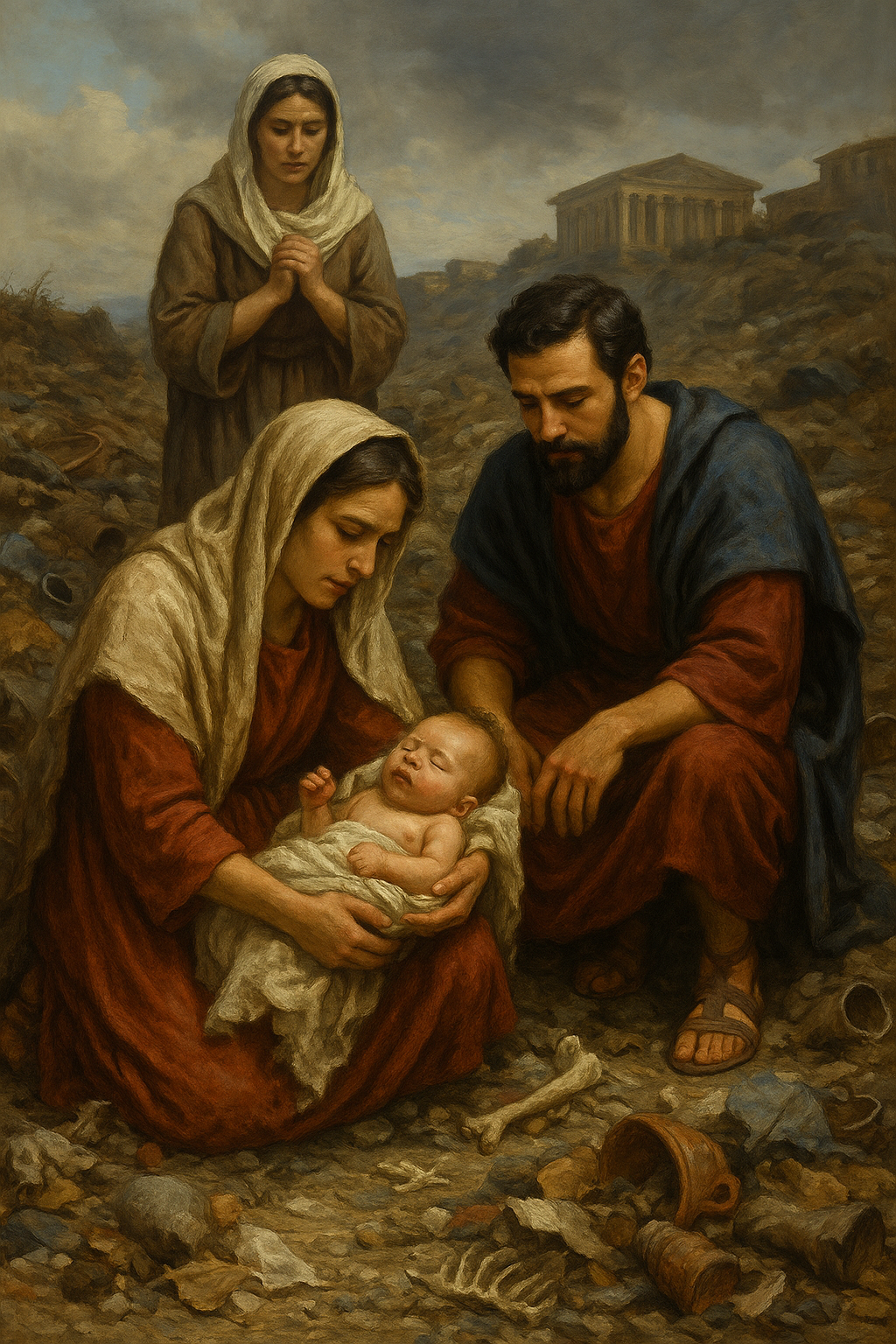The Remnant of God: Rescuers of the Innocent
INTRODUCTION
The remnant, as defined in Scripture, is not just a quiet group of private believers. They are those who stand firm when the majority fall away. They are the men and women whose faith is made manifest through courageous obedience—often at great personal cost. The Apostle Paul, quoting from Isaiah, said: “Even so then at this present time also there is a remnant according to the election of grace.” (Romans 11:5). And Isaiah said, “The remnant shall return... even the consumption decreed shall overflow with righteousness.” (Isaiah 10:21–22).
This remnant is always visible in one particular trait: they protect the innocent when the powerful seek to destroy them. They do not merely believe—they act. Especially when the state legalizes murder. Especially when the culture cheers it on. Especially when the Church looks away.
I. THE BIBLICAL REMNANT RESCUES THE INNOCENT
A. The Hebrew Midwives in Egypt
Exodus 1:15–21
When Pharaoh commanded the midwives to murder Hebrew baby boys, they refused. Why? Because they “feared God.” They defied the king and saved the children—and Scripture says God blessed them for it.
Key Point: The true remnant fears God more than man. They risk everything to protect life, even when doing so means defying tyrants.
B. Moses’ Parents
Exodus 2:1–3; Hebrews 11:23
Moses' parents refused to comply with Pharaoh’s decree of death. They hid their son by faith. They didn’t simply pray. They acted. They endangered themselves to preserve one innocent life.
Faith is revealed not merely in theology, but in the defense of the helpless.
C. Obadiah Hiding Prophets
1 Kings 18:3–4
While Jezebel was exterminating the prophets of God, Obadiah secretly hid one hundred of them in caves and fed them. He didn’t make a public speech. He didn’t start a petition. He put his life on the line in quiet but costly obedience.
When evil advances, the remnant hides the righteous and protects the persecuted.
D. Esther and Mordecai
Esther 4:13–16
Faced with an official decree of genocide, Esther initially hesitated—until Mordecai’s rebuke stirred her resolve: “Who knoweth whether thou art come to the kingdom for such a time as this?” She risked everything to intercede.
The remnant doesn’t merely mourn injustice—they step into danger to confront it.
II. HISTORICAL REMNANT IN ACTION
A. Early Church in Rome
In the Roman Empire, infants were commonly left outside to die—especially girls and the disabled. This was accepted, legal, normalized infanticide. But Christians, considered strange and dangerous by Roman standards, rescued these children. Some took them in and raised them as their own.
This is no different than abortion today—only now it wears medical garb and government protection.
B. Corrie ten Boom and Others During the Holocaust
In Nazi-occupied Europe, the remnant risked everything to hide Jews from death. Corrie ten Boom, a Christian woman in Holland, opened her home and eventually paid the price with imprisonment and the death of her sister.
The faithful remnant has always been accused of extremism by a compromised culture.
C. William Wilberforce and the Abolition of Slavery
Wilberforce gave his life to ending the legalized trafficking and murder of African people under British law. Though surrounded by religious institutions that justified slavery, he labored on.
Today’s abortion abolitionists stand in the same tradition—confronting a state-sanctioned holocaust, often without the support of the Church.
III. THE REMNANT TODAY: ABOLISHING ABORTION
A. Modern Abolitionists
Today, the remnant is not those who regulate child sacrifice, but those who call for its immediate and total abolition. They don’t seek compromise. They call for repentance. They obey the command of Proverbs 24:11–12:
“If thou forbear to deliver them that are drawn unto death… doth not he that pondereth the heart consider it?”
They stand alone if necessary—but they do not stand down.
B. Church Complicity vs. Remnant Obedience
Most churches in America either remain silent about abortion or support compromise laws that allow it to continue. This is not neutrality—it is complicity.
The remnant, by contrast, is marked by bold proclamation, public resistance, and sacrificial love.
They are the ones showing up outside abortion clinics. They are the ones rebuking legislators and calling pastors to repent. They are the ones enduring scorn to speak the truth.
C. The Cost of Being the Remnant
The remnant is never applauded. They are misunderstood, maligned, arrested, and often alone. But God honors them. As Isaiah 58 says:
“If thou draw out thy soul to the hungry, and satisfy the afflicted soul… the LORD shall guide thee continually… and thou shalt be called, The repairer of the breach.” (Isaiah 58:10–12)
CONCLUSION
God’s remnant is revealed most clearly when injustice reaches its peak.
Not by their songs. Not by their church buildings. But by whether they acted when the innocent were being slaughtered.
The question is not whether a remnant exists. It always does. The question is: Are you part of it?
Will you be like the Hebrew midwives… or the citizens of Egypt who followed orders?
Will you be like Corrie ten Boom… or the millions who said, “I didn’t know”?
Will you be part of the 0.00022% who cry out for the innocent in Connecticut… or will you continue on in silence?
The Connecticut Foundation to Abolish Abortion exists to rally the remnant. Join us. Stand with us. Rescue the innocent.
For such a time as this.


